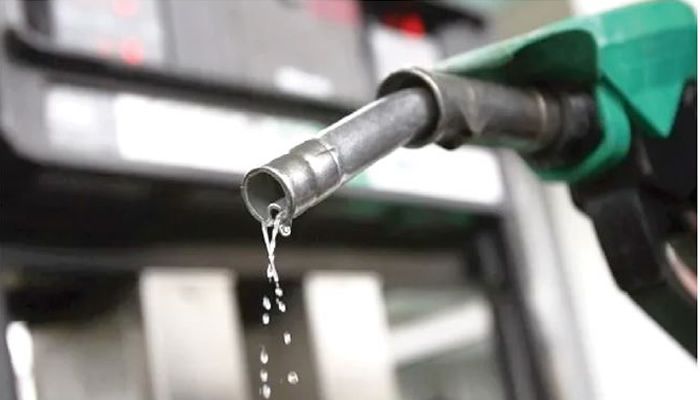[ad_1]

As Nigerians continue to groan over hike in fuel pump prices, a Professor of International History and Economy at the Federal University, Lafia, Nasarawa State, Prof. Wilfred Terlumun Uji has said that market forces and the exchange rate between Nigeria’s currency against the US dollar will determine the reduction in fuel pump prices in this year.
Prof. Uji disabused the mindset of Nigerians on the potential reduction in the pump prices of fuel in the country following the recent opening of refineries in Warri and Dangote’s facility.
He emphasized the import of factors such as the Naira’s exchange rate against the US dollar in determining the fuel prices.
Speaking with newsmen in Makurdi, Benue State,
Uji pointed out that market conditions, supply-demand dynamics, inflation, and currency depreciation will all play significant roles in shaping the fuel market landscape.
“The opening of these refineries typically aims to increase local fuel production and reduce dependency on imports, which can contribute to lower prices if executed effectively”.
Uji however expressed fears that currency valuation, inflation rates, and structural issues within the economy will play critical roles in determining the actual impact on fuel prices and the broader economic landscape.
The don emphasized that despite increased production capacity, issues such as the declining value of the nation’s currency and high rate of inflation will continue to impact fuel prices.
Prof. Uji who stressed the importance of considering the relationship between domestic oil production and imports in reducing fuel pump prices, argued that promoting economic nationalism and protectionist policies would be necessary to support local oil production and offset challenges associated with oil imports.
“In the year 2024, President Bola Tinubu initiated a series of economic reforms aimed at reducing Nigeria’s overdependence on various sectors while enhancing public governance and increasing private sector participation in development.
“These reforms included the removal of oil subsidies, electricity tariffs, and other subsidies to bolster the private sector and industrialization in the country. However, these reforms have posed challenges due to the lack of a strong industrial and manufacturing base in Nigeria”.
Professor Uji noted that the sizable investments in the private sector under Tinubu’s administration could potentially revitalize the economy if Nigeria possessed a robust industrial foundation similar to that of the Western nations.
He said, “With the majority of the economy driven by the informal sector, which consists largely of market vendors and artisans, the impact of these interventions remains limited”, he noted”.
He regretted that the huge sums of money sunk into the private sector businesses as part of the intervention policy of the President Bola Tinubu administration is enough to justifiably turn around the economic fortunes of the nation by kick-starting the economy in such a manner that will see Nigeria begin to pick up in terms of industrial boom, production and exchange of goods and services.
“But that is not just happening in Nigeria because we don’t have industries to meet such capacity”.
Professor Uji projected that Nigeria would continue to face challenges such as high inflation, poor exchange rates, and elevated poverty levels.
He urged citizens to focus on education, increase investments in key sectors like agriculture, and adopt a mindset centred on productivity and value creation to ensure a sustainable economic future.
“In order to achieve economic growth and stability in the coming years, I want to advise Nigerians to prioritize skills education, reduce consumption, increase investments, particularly in agriculture, and eliminate wasteful expenditures”.
He stressed the importance of personal financial discipline, population control, and a shift in mindset towards productivity and value creation as essential steps for a more sustainable economic future in 2025 and beyond.
Please follow and like us:
Related
[ad_2]
Source link


